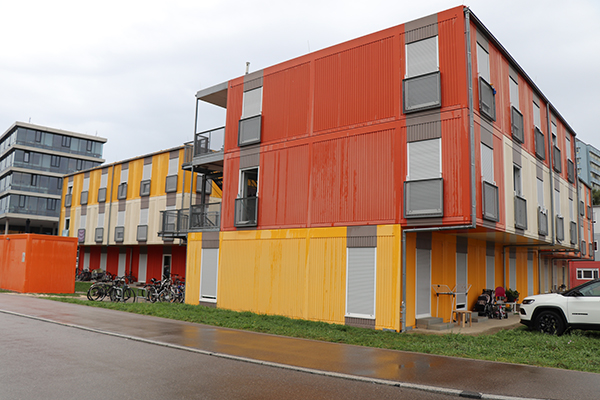In Germany, partners can live together and have children without a marriage license. However, most people still want to get married. How does the marriage ceremony work and what rights and obligations do the spouses have after the wedding?
In Germany, the registry offices are generally responsible for marriages. If you want to get married, you can register the marriage at the registry office of your own place of residence or at the registry office of your partner. To register the marriage, the bride and groom must complete the “Registration of marriage” form and submit all the necessary documents (see below). You can obtain the form from the registry office. If you want to get married in a city other than your own place of residence, you must also register at the registry office of your own place of residence. Marriages performed by a religious community have no legal significance. However, they can also be performed at the request of the bride and groom. Anyone wishing to get married can register at the registry office at the earliest six months before the wedding. In some cases, a specific date can also be reserved in advance. If all documents are available and the date is free, the wedding ceremony can take place within a few days of registration. Both partners must be present in person at the registration. If one of the spouses cannot be present, he/she can issue a power of attorney.
To get married in Germany, you must not be married to another person. In addition, the partners must be of legal age. It is forbidden to marry your own family members. This also applies to half-siblings and foster children. Since October 2017, same-sex couples have also been able to marry in Germany.
Anyone applying for a marriage at the registry office must usually submit the following documents: a valid identity card (or passport); a certified copy of the family register/birth register (not older than six months), extended registration certificate (not older than 14 days); if you have already been married, a certified copy of the marriage register as well as a legally binding divorce decree or death certificate of the former spouse; birth certificates of the joint children (if available).
The costs for a civil wedding vary from state to state. The preferred day of the week and the number of certificates and documents required also play a role. If you want to get married on a Saturday, you can expect higher costs. A civil wedding ceremony usually lasts around 30 minutes and must be conducted by employees of the registry office. Depending on their wishes, the bride and groom can exchange rings, have witnesses, say their vows or invite musicians.
The spouses can choose a common surname. This can be the current surname or the premarital surname of one of the spouses. The spouse whose name is no longer used can add their old name before or after the joint name. However, both spouses can also keep their old names.
As far as legal transactions are concerned: the wife or husband can make purchases and payments that also apply to their spouse. However, this only applies to everyday legal transactions such as buying food, clothes or transferring the rent. For larger transactions, such as the purchase of a car or a house, the consent of the partner is required.
Financial matters: The couple must provide for each other financially. This means that they must support their unemployed spouse and that the social welfare office, employment office or BAföG will only approve an application for state support if the applicants also earn little or no money.
In the case of married couples, the wife and husband automatically receive custody of the children. In the case of unmarried couples, one mother has custody unless the couple has agreed joint custody with the Youth Welfare Office.
If the spouse earns little or no money, he or she can be covered by the other person’s health insurance free of charge.
The tax class can also change after marriage, and spouses can usually save money on income tax.
If one spouse dies, the other receives financial support from the statutory pension insurance. This is the survivor’s pension. If the deceased has not left a will, the spouse automatically receives at least half of the respective assets. Surviving dependants also have to pay less inheritance tax than unmarried heirs.
You can find out more about the possible places of marriage, the costs and the necessary documents in Tübingen here: https://www.tuebingen.de/heiraten
tun24061202
Das Bürgeramt in Tübingen. Foto: tünews INTERNATIONAL / Mostafa Elyasian.
001927




